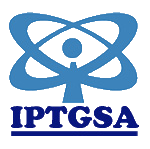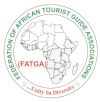Organisation abreviation
IPTGSA
Organisation Logo

Website
www.iptgsa.org
Country
South Africa
English
Contact person
Constitution
The Institute Of Professional Tourist Guides Of Southern Africa
Constitution
-
LEGAL STATUS The Institute of Professional Tourist Guides of Southern Africa hereinto referred to as the Institute has legal status as a corporate body under the common law of the Republic of South Africa. The laws of the Republic of South Africa shall govern the Constitution and the rights and obligations of members of the Institute.
- STATEMENT OF PRINCIPLES
- Preamble and Naming - The Institute believes that the South African tourism sector, as a key economic and social engine of development, requires a strong Tourist Guiding thrust to contribute and ensure equitable and responsible tourism growth and transformation. To achieve this, Tourist Guiding has to be elevated to a professional body and sector to impact meaningfully on the tourism value chain.
In order for Tourist Guiding to be fully recognised and have proper representation as a leading stakeholder in the development of tourism in South Africa in general, but Professional Tourist Guiding in particular, support for this establishment as a professional body, representing the interests and values of tourist guides in South Africa, is of vital importance. To this effect, a national independent body will be established based on strong professional and ethical codes of conduct. Such Tourist Guides, whatever their specialisation, shall be included in terms of a constitution and the definition of the Tourism Bill (Act 3 of 2014) of South Africa, and/or any subsequent amendments. Such a body shall be named “The Institute of Professional Tourist Guides of Southern Africa”. - Objectives It is the objective of the Institute to:
- Be a unified body representing Professional Tourist Guides, to which government and industry can both refer to and negotiate with on all matters relating to the Tourist Guiding Sector;
- Deepen the value chain in tourism by working with government, training providers, employers, and service providers in raising the profile of Professional Tourist Guides, to increase the level of professionalism and satisfaction amongst service users and thus Southern Africa as a preferred tourist destination;
- Offer members ongoing opportunities with monitoring of high standards of quality in training, education, and professional development;
- Facilitate the provision of benefits to members including conciliation services, collective representation to government and employers, remuneration and basic conditions of employment, negotiations, preferential professional insurance, and medical aid rates amongst others.
- Vision: To promote and maintain a platform of recognised professional Tourist Guides in Southern Africa.
- Mission: Contribute to the development of professional guiding and invest and support members by improving their capacity and abilities
- Interaction: The Institute shall interact and engage with the government, the World Federation of Tourist Guide Associations, Tourist Guide Associations of Africa, stakeholders, and private business as an equal entity, towards achieving synergy for a national tourism culture, policy, and strategy for Southern Africa as a tourist destination. The Institute fully recognises the historical exclusion of the disadvantaged people of South Africa from participation in the mainstream of the South African tourism industry. Mindful of this reality, it is a fundamental principle of the Institute to cooperate, collaborate and support interventions that ensure the inclusion and development of historically disadvantaged communities of the tourism industry.
- Neutrality: Trust in seeking to constructively influence macro and micro tourism policies, tourist guiding strategies, and functions, the Institute will act from a position of political, ethical, and religious neutrality and mutual trust as fundamental to its structures, proceedings, and objectives.
- Consensus: The consensus principle is fundamental to the proceedings of the Executive Committee in the belief that it best serves representative decision-making by the Institute.
- Preamble and Naming - The Institute believes that the South African tourism sector, as a key economic and social engine of development, requires a strong Tourist Guiding thrust to contribute and ensure equitable and responsible tourism growth and transformation. To achieve this, Tourist Guiding has to be elevated to a professional body and sector to impact meaningfully on the tourism value chain.
Members of this Association
Johan van Biljon
Lesiba Fothane
